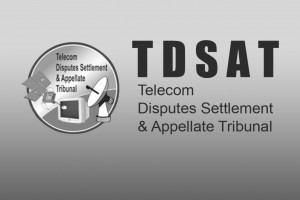Telecom Disputes Settlement Appellate Tribunal (TDSAT): A Division Bench of Shiva Kirti Singh (Chairperson), J. and A.K. Bhargava (Member), allowed a telecommunication petition filed against the actions of the respondent authorities, whereby fee for testing the Electromagnetic Fields (Radiation) exposure at Base Transceiver Station (BTS) sites, by the TERM Cell was arbitrarily fixed at Rs 10,000.
The main contentions on behalf of the petitioner were that the fee being charged for the said test was arbitrarily fixed because in cases where a public complaint was filed, the same test was conducted by the DoT at Rs 4,000 per site. Secondly, the fee being charged was fixed per BTS, whereas it should be charged per site since the combined effect of all the BTS determine whether a particular site is ICNIRP guidelines compliant. Thirdly, the respondents were also seeking to charge the petitioners on backlog basis i.e. there was a limit of upto 10% of the total BTS which could be randomly inspected by the respondent and meeting this ceiling was not a mandate.
The main issue that arose before the Tribunal was whether the circular issued by the respondent and the actions taken in furtherance of that circular were valid in the eyes of law.
The Tribunal observed that the respondent is justifying the cost of Rs 10,000 as a fee to meet the cost of required testing of BTS site, however, the same testing is carried out for Rs 4,000 on a public complaint. The Tribunal accepted the argument of petitioner that in a fee of present nature, the charge should be justified by reasonable cost flowing from the concept of quid pro quo and this proposition was backed by the Supreme Court decision of Calcutta Municipal Corporation v. Shrey Mercantile (P) Ltd, (2005) 4 SCC 245.
The Tribunal held that the respondents have clearly failed to justify the amount of Rs 10,000 being charged by them as a fee for conducting tests when the same test was being carried out at a much lesser rate on a public complaint. Hence, this fee was found to be arbitrary as well as against the settled principle of quid pro quo. Further, the Tribunal also held that as per the circular the ceiling of 10% of BTS to be inspected randomly at the discretion of TERM Cell. The words ‘up to’ denotes that such randomly selected sites should not cross the ceiling of 10% in ordinary circumstances but it does not mandate that in any given year this ceiling has to be achieved and hence the fee charged on excessive tests conducted by the respondent cannot be justified on backlog basis. Further, the radiation limits of a particular site are to be tested and hence the fee charged should be charged per site and not per BTS, in the absence of any reasonable justification. Resultantly, the petition was allowed and the fee charged by the respondent was directed to be set at Rs 4,000.[Cellular Operators Association of India v. Union of India, 2018 SCC OnLine TDSAT 354, order dated 30-10-2018]

